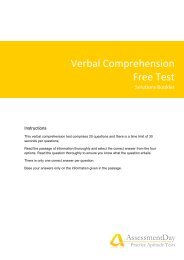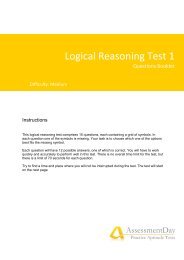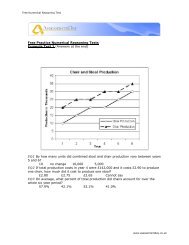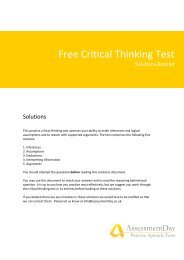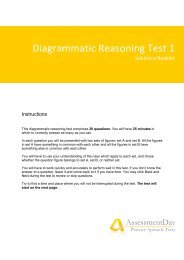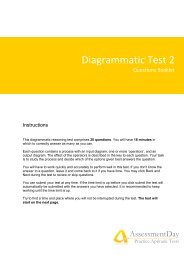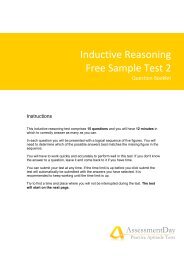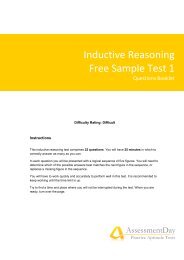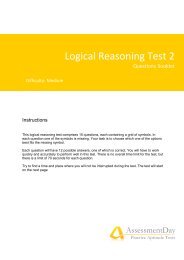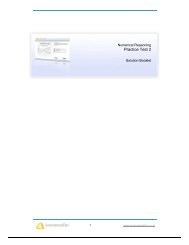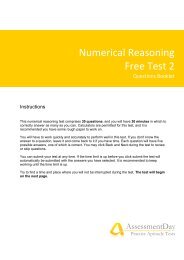Verbal Reasoning Test 1 Solutions (PDF) - Aptitude Test
Verbal Reasoning Test 1 Solutions (PDF) - Aptitude Test
Verbal Reasoning Test 1 Solutions (PDF) - Aptitude Test
Create successful ePaper yourself
Turn your PDF publications into a flip-book with our unique Google optimized e-Paper software.
In biology, the term mutualism refers to a mutually beneficial relationship between two<br />
species. The later economic theory of mutualism is based on the labour theory of<br />
value, which states that the true cost of an item is the amount of labour that was<br />
required to produce it. Hence, goods should not be sold for more than the cost of<br />
acquiring them. Mutualism is closely associated with anarchism, because its<br />
principles were set forth in the mid- nineteenth century by the French politician and<br />
philosopher Pierre-Joseph Proudhon – the first person to define himself as an<br />
“anarchist”. The main tenets of mutualism are free association and free credit. In a<br />
mutualist workplace, workers with different skills form an association to create a<br />
product or service. Though dependent on each other, the workers are not<br />
subordinated as in a capitalist enterprise. Mutual banks, also called credit unions,<br />
operate on the belief that free credit enables profit to be generated for the benefit of<br />
the union’s members rather than bankers. Modern-day mutualism is sometimes<br />
described as free-market socialism. Proponents of mutualism support a free market<br />
economy, but object to capitalism because of the inequalities created by government<br />
intervention. Many mutual businesses and banking establishments exist today,<br />
espousing Proudhon’s Co-operative model.<br />
Q21. Proudhon’s economic theory of mutualism was influenced by biological<br />
mutualism.<br />
True False Cannot say<br />
Cannot Say – The passage does not state whether the economic theory was influenced by<br />
biology, although it did come later.<br />
Q22. Mutual banking establishments do not operate on a for-profit basis.<br />
True False Cannot say<br />
False – Sentence eight tells us that mutual banking establishments do seek to “generate<br />
money”, but this profit is shared between union members rather than the bankers. So<br />
regardless of who it goes to, we are told the banks do create profit.<br />
You may share this document with others as long<br />
as you credit AssessmentDay.co.uk with a website<br />
link but you can’t change this document in any<br />
way or use its contents commercially.<br />
Page 10<br />
AssessmentDay<br />
www.assessmentday.co.uk<br />
Document last updated 05-07-2013



